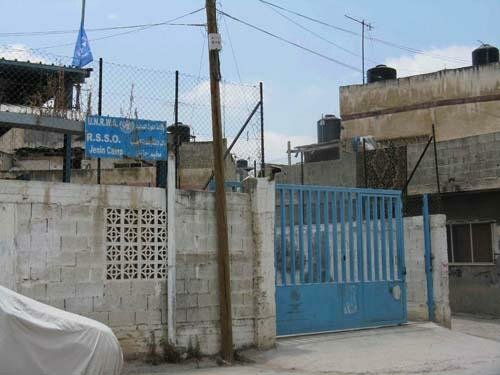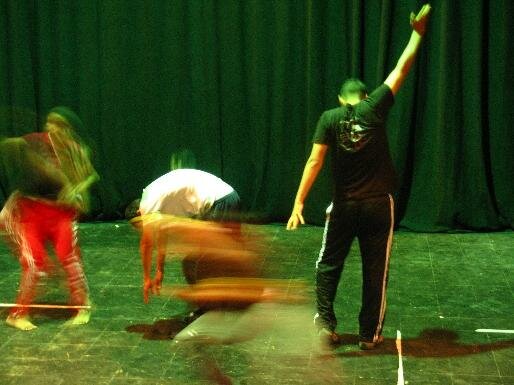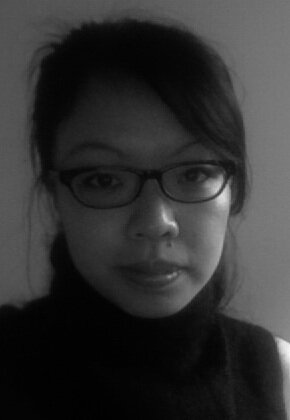Juliano Mer-Khamis: A death much mourned
They killed a good man in a place and time where there is a woeful lack of them.
“We thought: Why isn't there an Arab who would do this for us? Why would Jews, who are enemies of the Arabs, why would they do all this for us? I really wondered. But when I had a chance to check you out.... you are like a brother to me.”
− A Palestinian youth Yousef Zwetti to Juliano Mer-Khamis.
− (Taken from Mer-Khamis's documentary on the Jenin Refugee Camp “Arna's Children”)
There are people in the world who do something, though it is easier not to. One such person was Juliano Mer-Khamis.
He did what he did, he made enemies, and his life was cut short today, perhaps by someone who hated what he did.
What did he do?
Juliano Mer-Khamis co-founded the Freedom Theatre, a performing arts group in the Jenin Refugee Camp. Jenin is a town in the northern part of the Palestinian West Bank. During the Second Palestinian Intifada that started in 2000, Jenin witnessed some of the fiercest fighting, as Israeli tanks rolled into town, shelling homes, hunting down militants planning and launching attacks against Israel.
Today's Jenin is still filled with rubble left over from the Intifada.

Against that backdrop of war, death and destruction, Juliano Mer-Khamis's Freedom Theatre gave Palestinian youth a place and an outlet to express themselves. Through performing arts, they became acquainted with a world not completely subsumed by fear, struggle, martyrdom, armed conflict and the Israeli occupation, a world they deserve that had been denied to them.
As one of them put it, “ I can tell people how I feel, what I want and don't want.”
Besides setting up the Freedom Theatre, Mer-Khamis also made a film called “Arna's Children”. Arna refers to his mother, an Israeli woman, a former soldier who fought in Israel's war of independence in 1948. She later came to Jenin, where she set up a children's centre.
There, she ran a programme that educated the Palestinian children of the refugee camp, engaging them in creative activities. She was helped by a group of volunteers, both Israeli and Palestinian.
Juliano Mer-Khamis documented her work among the children of Jenin refugee camp. The result is a chilling film about a group of young Palestinian boys who grew up in the care of a caring Israeli Jewish woman, only to have their lives crushed by the bulldozers and tanks of the Israeli army a decade later.
“Arna's Children” is a damning indictment of the consequences of the Israeli occupation on the Palestinian population, especially the children, and how it can crush their hopes of an existence apart from armed resistance against their occupiers.

Like his mother, he saw through the popular rhetoric that cast Palestinians as the terrorists.
Born to an Israeli Jewish mother and a Palestinian Christian father, Juliano Mer-Khamis called himself “100 percent Jewish and 100 percent Arab.” Like his mother, he saw through the popular rhetoric that cast Palestinians as the terrorists, and saw them as they are, fellow human beings equally deserving of a normal, peaceful life.
In Israel, as well as in the Palestinian Territories, there's lots of talk about peace.
The right, the left, the centre, the religious, the secular, the undecided, the governing, the governed, the want-to-govern, the powerful, the powerless, even the ambivalent.
Miles have been covered from Jerusalem to Camp David, Oslo to Ramallah to talk about it. Brilliant minds and cunning strategists have been engaged to discuss it. Forest-ful of papers have been written about it.
Blah blah and blah. The absence of peace in the Middle East is not for lack of talking about it.
Lots of talkers there are, but few and far between are the doers, those who actually labour for peace. and make a real and meaningful change.
They cross political and religious divides to find common ground. They respect the humanity in others, in the “enemy”. Juliano Mer-Khamis was one of these doers.
When they first met him, the Palestinians boys in Jenin thought this Jew who came among them was an Israeli spy. But Juliano Mer-Khamis, like his mother, gained their love and trust, as they worked and lived among the Jenin residents.
They showed that the Jewish-Arab divide, the Israeli-Palestinian chasm can be crossed.
One of the Palestinian women pointed him out to her child warmly, “This is Uncle Jule. He is a Jew.”
Mer-Khamis left Jenin after his mother died. When he returned after a five-year absence, residents of Jenin still remembered him. One of the Palestinian women pointed him out to her child warmly, “This is Uncle Jule. He is a Jew.”

I visited the Freedom Theatre back in May 2009. There, I met young Palestinians, talented and eloquent, fused with purpose, ignited with the youthful's gusto for life, who found expression in something creative. They did not let their lives be wretched by a military occupation that robs its victims and perpetrators of their humanity.
Amazingly, there were those – both on the Israeli and Palestinian sides - who found something to hate about what he was doing. Mer-Khamis defied their creed that between Jews and Arabs, never the twain shall meet. To them, his work was treachery.
Now, he has been murdered, presumably by one of them.
Juliano Mer-Khamis left behind two children and a wife, currently pregnant.
He was a fallen fighter in a struggle for reason in a place often without.
More information about “Arna's Children” and the Freedom Theatre at https://www.thefreedomtheatre.org
Related Story:


















